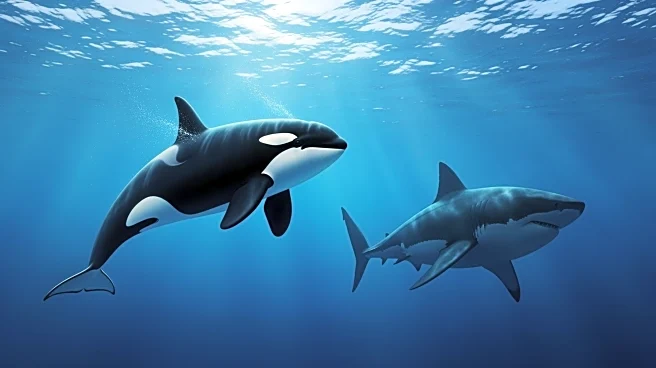What's Happening?
In the Gulf of California, a pod of killer whales, known as orcas, has been observed using sophisticated hunting techniques to prey on young great white sharks. This behavior was documented in two separate incidents, where the orcas flipped the sharks onto
their backs, inducing a state of tonic immobility, which temporarily paralyzes the sharks. This allowed the orcas to extract and consume the sharks' nutrient-rich livers. The pod, named Moctezuma, has been noted for its strategic hunting methods, which are believed to be passed down through generations. These observations suggest that orcas may hunt great white sharks more frequently than previously thought, particularly targeting younger, less experienced sharks.
Why It's Important?
The observed behavior of orcas preying on great white sharks highlights the complex predator-prey dynamics within marine ecosystems. This development is significant as it challenges the perception of great white sharks as apex predators, revealing that they too have natural predators. The orcas' ability to adapt and refine their hunting techniques demonstrates their advanced intelligence and social learning capabilities. This behavior could have broader ecological implications, potentially affecting the population dynamics of great white sharks and altering the marine food web. Additionally, the presence of orcas in the Gulf of California may be influenced by climate phenomena like El Niño, which could be shifting the habitats of great white sharks.


















